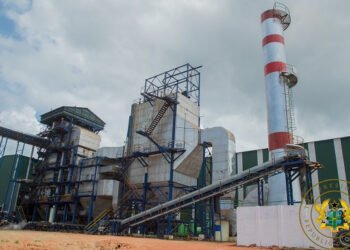Livelihood Empowerment Against Poverty (LEAP), a government-implemented social protection initiative in Ghana, aims to provide cash grants to extremely impoverished and vulnerable households to mitigate economic and social hardship.
However, mismanagement can lead to the loss of its essence, undermining its impact on poverty reduction and vulnerability alleviation.
Furthermore, a primary way mismanagement can occur is through inefficient targeting.
This can result in inaccurate identification of beneficiaries, leading to exclusion errors and inclusion of non-vulnerable households.
This can be due to inadequate data collection, poor data analysis, or a lack of understanding of the target population’s needs.
As a result, resources may be wasted on households that do not require assistance, while those in genuine need may be left out.
Inadequate funding, which has always been an issue, is also a significant challenge that can lead to mismanagement.
Insufficient allocation of resources can limit the program’s reach and impact which can result in a reduction in the number of beneficiaries, payment amounts, or frequency.
Inadequate funding can also lead to delays in payment disbursement, which can exacerbate the economic and social hardships of vulnerable households.
Moreover, lack of transparency and accountability is another challenge that can lead to mismanagement.
Inadequate monitoring, evaluation, and reporting can hide mismanagement and hinder corrective actions.
This can result in a lack of accountability among implementers, reducing the program’s effectiveness.
Accordingly, the Auditor General’s report on the LEAP Management Secretariat showed that funds were disbursed to certain individuals who were not eligible for the program, indicating mismanagement.
The Auditor General found that LMS paid cash grants to caregivers of deceased beneficiaries in one-member households, resulting in payments to 44 deceased beneficiaries amounting to GH₵ 454,480.00.
“We also noted that LMS [LEAP Management Secretariat] did not conduct reassessments of LEAP beneficiaries as required. Despite identifying positive impacts of the program, LMS failed to graduate or exit beneficiaries even when their socioeconomic status had improved. This led to payments of GH₵ 396,630.00 to beneficiaries who no longer qualify to be on De program”.
Auditor General’s Report
LEAP Program Faces Additional Challenges
Furthermore, inadequate capacity and training among implementers can also lead to the mismanagement of the LEAP.
Implementers may lack the necessary skills and knowledge to effectively manage the program, leading to errors and inefficiencies.

Political interference can also compromise the program’s objectives and implementation.
Political pressure and influence can lead to biased targeting, corruption, and inefficient allocation of resources.
Inefficient payment systems can also lead to mismanagement as inadequate payment systems can result in delays, losses, and insecurity in delivering cash grants to beneficiaries.
Limited community engagement can also lead to mismanagement as failure to engage with local communities can result in a lack of ownership and limited impact.
This can lead to a lack of understanding of the target population’s needs and priorities, as identified in the Auditor General’s report, resulting from the LEAP Management Secretariat’s (LMS) failure to conduct a reassessment.
Most importantly, inadequate data management can hinder program evaluation and improvement.
Poor data collection and analysis can lead to inaccurate assessments of the program’s impact, making it challenging to identify areas for improvement.
As such, the Auditor General’s report stated that the LEAP Management Secretariat (LMS) did not adhere to fund utilization guidelines.
This, the report indicated, led to LEAP expending more funds on running the program than allowed resulting in excess spending of GH₵ 15,369,309.97 risking the sustainability of the program.
The report also indicated that the Ministry of Gender, Children, and Social Protection (MOGCSP) did not keep appropriate records on funds expended by LEAP.
“We have made recommendations to LMS, the details of which are in this report, to bring about improvement in their activities. We also recommended to MOGCSP to improve its recordkeeping regime to enhance accountability”.
Auditor General’s Report
Thus, mismanagement can undermine the effectiveness of LEAP, reducing its impact on poverty reduction and vulnerability alleviation.
It is essential to address these challenges to ensure that the program achieves its intended goals and makes a meaningful impact on the lives of vulnerable households in Ghana.
READ ALSO: GSE Reaches Historic Milestone with Over GHS 90 Billion Market Capitalization



















